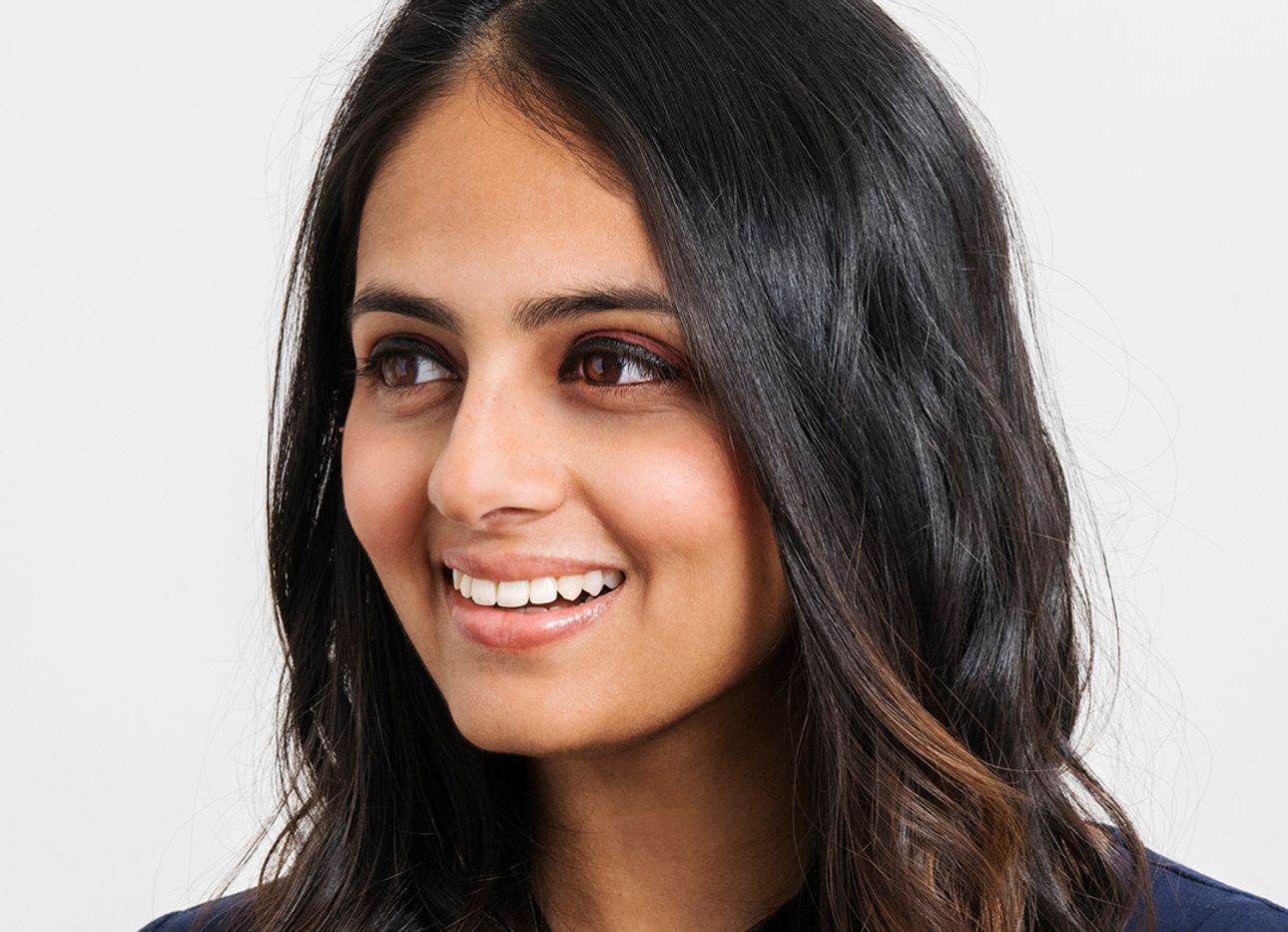
Aishwarya Iyer Wants to Change the Way You Think About Olive Oil
Aishwarya Iyer never thought she would found an olive oil company. At least her background in start-ups and venture capital never led her to thinking she would. But after realizing that the oil in her pantry was making her sick, she began researching the kitchen staple—and discovered that most of the olive oil consumed in America is rotten, rancid, or adulterated. It’s also perishable, one of many little-known facts about the ingredient.
So Iyer decided to make her own, and launched Brightland in 2018. Using olives from a family-run farm on California’s central coast, the Los Angeles–based company makes extra-virgin olive oil, including more adventurous lemon- and basil-infused versions, without the use of fillers or artificial preservatives. We caught up with Iyer to discuss the myths, truths, and outright lies about olive oil, and how Brightland sets the record straight.
Debunk some false truths about olive oil for us.
One of the biggest misconceptions is that olive oil is just like wine—that it ages beautifully and should be saved. That’s not the case at all. Ultimately, an olive is a fruit. It is pressed and turned into oil and absolutely has a shelf life.
Another myth is that you can pour olive oil into a clear glass container and keep it out on your kitchen counter. When you do that, it will go bad within a week. Light is one of olive oil’s biggest enemies. You never want light to hit the product in any way.
Most people think there’s just one kind of olive oil, but there are actually hundreds of varieties. There’s a specific region and process by which the olives are picked, a specific time they were harvested, a specific blending of them. All of those things have an impact on how the oil ends up tasting.
How can the average person know if their olive oil is fresh?
Look for a harvest date. Unopened, it’s fresh for eighteen months from then. Or grab a spoon, and taste it. Good olive oil tastes grassy, fruity, layered, nutty—it is alive, a product of agriculture. If it tastes like waxy crayons or plastic, it’s not good.
In the U.S., extra-virgin olive oil is not regulated by the FDA. A 2015 investigation by the National Consumers League found that six out of 11 national brands misrepresented quality grades to consumers. Common forms of fraud include blending olive oil with other vegetable oils like soybean or sunflower oil, and refining oil made from rotten olives at a very low temperature, which removes the taste of rancidity. Why has so much deceit happened in the industry?
It’s been happening for thousands of years. In ancient Rome, when they put harvest dates on pots of olive oil to prevent deception, people would cross out the dates to lie about when it was made. Olive oil was liquid gold. Because there was such a demand for it, people cut corners.
Have things gotten any better?
We have started to ask more tough questions about food. It’s not like olive oil is the only fraudulent food out there—there’s honey, salt, saffron, wine, and many others. When you don’t ask questions, you don’t really know. The last few years have definitely been an unraveling of that [kind of scam].
I don’t know if anything has really changed, though. What I do know is that when I started Brightland, people told me, “Oh, nobody cares about how olive oil tastes. They don’t want anything super bold or pungent or peppery. They just want something buttery.” I took the exact opposite approach. I can only speak to my own experience, but it’s been amazing to see people get excited by the nuances and flavor profiles of our products.
How does Brightland respond to the bad things you’ve seen happening in the industry?
We put the harvest date on the label of each bottle, which has a white, organic UV casting that protects the oil inside. From a content standpoint, we do as much education as possible on social media and on our blog. That means talking about the olive varieties we use, where our olives are harvested, why a glass bottle is better than a plastic bottle, why the bottle should not be clear—no one was really discussing those things before.
This past summer, you ventured into vinegar with Parasol, a raw, double-fermented champagne vinegar made from California chardonnay grapes and navel and Valencia oranges, and Rapture, a double-fermented balsamic vinegar made from California zinfandel grapes and Triple Crown blackberries. Is there fraud happening in the vinegar industry, too?
There are common vinegar additives, like GMO brown sugar, caramel coloring, thickeners, and corn syrup. Most people don’t realize that many manufacturers do not use real fruit. We were lucky: There’s a vinegar farm in the same area as the olive farm we work with, so we get the fruit to make our vinegars from them.
What’s the most surprising thing you’ve learned about olive oil since starting Brightland?
I didn’t go to culinary school, so it’s amazing to see how people use olive oil in recipes. I saw someone make this incredible ice cream. Someone else posted that she used one of our spicier oils to make pancakes. I’ve seen every type of application. We also have a chef-in-residence named Noreen Wasti. Her latest recipe uses Brightland products to make a flaky South Asian flatbread called parathas. I grew up eating that bread, but we never made it with olive oil. Noreen incorporated it beautifully.